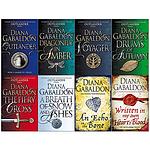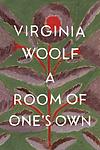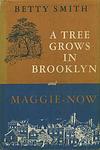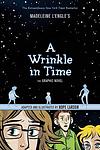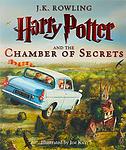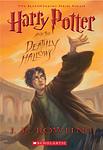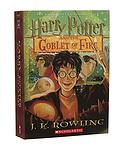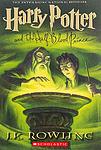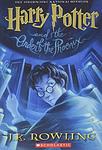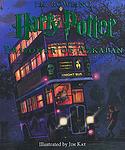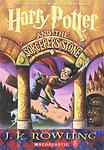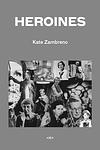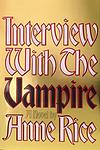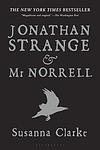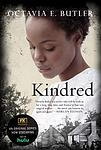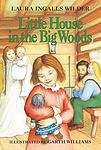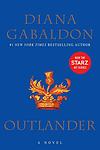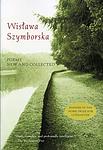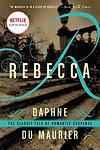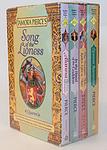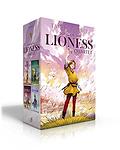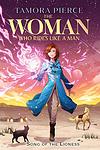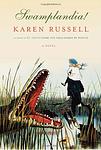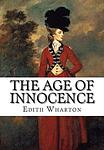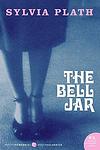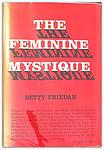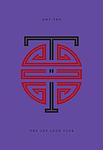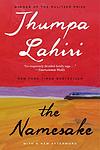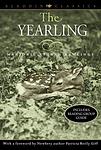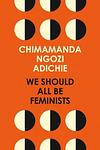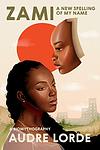87 Books Written by Women That Are So Good, You Won't Be Able to Put Them Down
This is one of the 284 lists we use to generate our main The Greatest Books list.
-
A Breath Of Snow And Ashes by Diana Gabaldon
In this installment of the historical fiction series, the story continues to follow the lives of a time-traveling 20th-century doctor and her 18th-century Scottish Highlander husband as they navigate the perils of life in colonial America. As the American Revolution looms, the couple faces personal tragedies, political upheaval, and the constant threat of violence. They struggle to protect their family and their community in the backwoods of North Carolina, all while dealing with the complexities of their unique situation and the implications of knowing the future. The novel blends romance, adventure, and historical detail, creating a vivid and tumultuous world for its characters.
-
A Room of One's Own by Virginia Woolf
This book is an extended essay that explores the topic of women in fiction, and the societal and economic hindrances that prevent them from achieving their full potential. The author uses a fictional narrator and narrative to explore the many difficulties that women writers faced throughout history, including the lack of education available to them and the societal expectations that limited their opportunities. The central argument is that a woman must have money and a room of her own if she is to write fiction.
-
A Tale For The Time Being by Ruth Ozeki
In this introspective novel, a diary washes ashore on a remote Canadian island, bridging two disparate worlds. The journal, written by Nao, a troubled Japanese teenager, chronicles her life, her contemplation of suicide, and her relationship with her great-grandmother, a Zen Buddhist nun. The diary is discovered by a novelist, who becomes engrossed by Nao's story and is compelled to unravel the mysteries of Nao's fate and her own connection to the young girl. As the novelist reads, the boundaries between writer and reader, past and present, fiction and reality blur, creating a meditation on time, loss, and the intricate threads that connect human lives across the globe.
-
A Tree Grows in Brooklyn by Betty Smith
This classic novel follows the life of Francie Nolan, a young girl growing up in the slums of early 20th century Brooklyn. The narrative explores her experiences with poverty, her pursuit of education, and her dreams of a better life. The tree in the title serves as a symbol of her resilience and hope, growing and thriving despite the harsh conditions around it, much like Francie herself.
-
A Wrinkle In Time by Madeleine L'Engle
The novel follows the story of a young girl named Meg Murry, her younger brother Charles Wallace, and their friend Calvin O'Keefe as they embark on a cosmic journey to rescue Meg and Charles Wallace's father. The father, a scientist, has been missing since he discovered a new planet using the concept of Tesseract, which is a wrinkle in time. Guided by three mysterious celestial beings, the children travel across different dimensions, face evil forces, and learn about the power of love and self-sacrifice.
-
Ain't I A Woman?: Black Women And Feminism by bell hooks
This seminal work in feminist theory examines the impact of sexism and racism on Black women throughout American history. It challenges the marginalization of Black women within both the feminist movement and civil rights discourse, arguing that the intersection of their racial and gender identities creates unique forms of oppression. The book critiques the mainstream feminist movement for its focus on white women's experiences and calls for a more inclusive approach that addresses the diverse and complex realities of Black women's lives. Through historical analysis and cultural critique, it advocates for a feminism that is truly universal and attentive to the ways in which race, class, and gender intersect.
-
Americanah by Chimamanda Ngozi Adichie
The novel follows a young Nigerian woman who emigrates to the United States for a university education. While there, she experiences racism and begins blogging about her experiences as an African woman in America. Meanwhile, her high school sweetheart faces his own struggles in England and Nigeria. The story is a powerful exploration of race, immigration, and the complex nature of identity, love, and belonging.
-
An Echo In The Bone by Diana Gabaldon
In this installment of a time-traveling historical fiction series, the narrative continues to follow the lives of a 20th-century surgeon and her 18th-century Scottish Highlander husband as they attempt to make a life for themselves in the American colonies amidst the turmoil of the Revolutionary War. The couple faces personal and historical challenges as they navigate the complexities of loyalty, love, and survival. Their story is interwoven with that of their daughter and her family in the 20th century, who are dealing with their own set of trials and discoveries that are mysteriously connected to the past. The novel blends rich historical detail with romance, adventure, and the intricacies of family and relationships across time.
-
And Then There Were None by Agatha Christie
In this classic mystery novel, ten strangers are invited to a secluded mansion on a private island by a mysterious host who is nowhere to be found. As the guests begin to die one by one, mirroring a creepy nursery rhyme that hangs in each of their rooms, they realize that the killer is among them. As suspicion and fear escalate, they must uncover the murderer before no one remains.
-
Anne of Green Gables by L. M. Montgomery
The book follows the life of a young orphan girl who is mistakenly sent to live with an elderly brother and sister who originally wanted to adopt a boy to help them with their farm in Prince Edward Island. Despite the initial disappointment, the girl's charm, vivacity, and imagination soon win over her new guardians. The story details her adventures and mishaps in her new home, her struggles and triumphs at school, and her gradual maturing into a smart, independent young woman.
-
Atlas Shrugged by Ayn Rand
This novel unfolds in a dystopian United States where society's most productive citizens, including inventors, scientists and industrialists, refuse to be exploited by increasing social and economic demands. As a response, they withdraw their talents, leading to the collapse of the economy. The story presents the author's philosophy of objectivism, which values reason, individualism, and capitalism, and rejects collectivism and altruism. The narrative primarily follows Dagny Taggart, a railroad executive, and John Galt, a philosophical leader and inventor, as they navigate this societal breakdown.
-
Beloved by Toni Morrison
This novel tells the story of a former African-American slave woman who, after escaping to Ohio, is haunted by the ghost of her deceased daughter. The protagonist is forced to confront her repressed memories and the horrific realities of her past, including the desperate act she committed to protect her children from a life of slavery. The narrative is a poignant exploration of the physical, emotional, and psychological scars inflicted by the institution of slavery, and the struggle for identity and self-acceptance in its aftermath.
-
Dragonfly In Amber by Diana Gabaldon
The book is the second installment in a historical fiction series that weaves together romance, science fiction, and adventure. It continues the story of a 20th-century Englishwoman who has time-traveled to 18th-century Scotland and fallen in love with a dashing Highland warrior. As the Jacobite rebellion leads to the fateful Battle of Culloden, the couple faces the threat of being torn apart by the tumultuous events of history. Interwoven with their past is the present-day narrative of their daughter, who discovers her parents' remarkable story and the truth of her own origins. The novel explores themes of love, loyalty, and the impact of the past on the present.
-
Drums Of Autumn by Diana Gabaldon
In this sweeping historical romance, a couple finds themselves in the American colonies on the brink of the American Revolution. They face the challenges of building a new life in the rugged wilderness, confronting the perils of an untamed land, and navigating the complexities of loyalty, love, and family. As they establish their homestead, they encounter a diverse array of characters, including indigenous peoples, fellow settlers, and time travelers with their own secrets. The narrative intertwines the couple's personal journey with the broader historical events of the era, crafting a tale of passion, adventure, and the quest for a place to call home.
-
Frankenstein by Mary Shelley
This classic novel tells the story of a young scientist who creates a grotesque but sentient creature in an unorthodox scientific experiment. The scientist, horrified by his creation, abandons it, leading the creature to seek revenge. The novel explores themes of ambition, responsibility, guilt, and the potential consequences of playing God.
-
Go Tell The Bees That I Am Gone by Diana Gabaldon
In this historical fiction novel, we follow the story of a time-traveling woman who has reunited with her 18th-century husband in pre-Revolutionary America. As the couple attempts to build a life together in the tumultuous setting of the American colonies, they are faced with the challenges of the impending war, family drama, and the complexities of navigating a society on the brink of rebellion. The novel intertwines elements of romance, adventure, and historical events, as the protagonists balance their personal lives with the larger historical forces at play, all while maintaining the secret of the woman's time-traveling origins.
-
Harry Potter And The Chamber Of Secrets by J. K Rowling
In this second installment of a magical series, a young wizard returns to his school of witchcraft and wizardry for his second year, only to find that a mysterious entity is petrifying his classmates. With the help of his friends, he uncovers the dark history of the school, including a secret chamber hidden within the castle. Inside this chamber lurks a creature controlled by a memory from the past, and the young wizard must face it to save his school.
-
Harry Potter and the Deathly Hallows by J. K Rowling
In the final installment of this popular series, the protagonist and his friends decide to leave their school to complete the mission left to them by their late headmaster - to destroy the remaining pieces of the antagonist's soul, hidden in various objects. As they journey through the wizarding world, they uncover the truth about the antagonist's past and the legend of the Deathly Hallows. Amidst the escalating war, they are captured and narrowly escape, leading to the ultimate battle at their school where many lives are lost. The protagonist learns he must sacrifice himself to truly defeat the antagonist, but is given a second chance at life and finally triumphs, ending the war. The story concludes with a glimpse into the peaceful future they have all earned.
-
Harry Potter and the Goblet of Fire by J. K Rowling
In this fourth installment of a popular fantasy series, a young wizard finds himself unexpectedly entered into a dangerous tournament between rival schools of magic. He must compete in a series of challenging tasks, including a deadly dragon chase and a terrifying underwater rescue mission. Meanwhile, he's dealing with regular teen issues like crushes, jealousy, and school dances. But as he unravels the mystery behind his selection for the tournament, he uncovers a dark plot that puts his life in danger and hints at the return of a powerful dark wizard.
-
Harry Potter and the Half-Blood Prince by J. K Rowling
In the sixth installment of the series, the protagonist returns for his sixth year at a magical school, where he excels in potions class with the help of an old textbook once belonging to the mysterious "Half-Blood Prince". As he delves deeper into his enemy's past through private lessons with the headmaster, he learns more about the Dark wizard's history and his own destiny. Amidst this, the school is no longer the safe haven it once was, and danger lurks within the castle walls. The year ends with a devastating loss, setting the stage for the final showdown.
-
Harry Potter and the Order of the Phoenix by J. K Rowling
In the fifth installment of this iconic series, the young wizard Harry Potter returns for his fifth year at Hogwarts School of Witchcraft and Wizardry, only to discover that much of the wizarding world, including the Ministry of Magic, is in denial about the teenager's recent encounter with the evil Lord Voldemort. Harry is also beset by disturbing dreams while the sinister prison guards of Azkaban have been stationed at Hogwarts to protect the school, and Harry's budding abilities as a wizard are put to the test. Meanwhile, a secret society, the Order of the Phoenix, is working to fight Voldemort and his followers, and Harry's role in the coming conflict is becoming ever more significant.
-
Harry Potter And The Prisoner Of Azkaban by J. K Rowling
In this third installment of the popular fantasy series, the protagonist enters his third year at a magical school, only to find out that a notorious prisoner has escaped from a supposedly inescapable prison and is believed to be after him. As the school year progresses, he learns more about his parents' history, uncovers secrets about his professor, and discovers a magical map. He also learns to summon a powerful defensive spell, confronts the escaped prisoner, and uncovers the truth about his parents' betrayal and death. The book ends with him saving an innocent life and learning a valuable lesson about the complexity of human nature and the importance of true friendship.
-
Harry Potter And The Philosopher's Stone by J. K Rowling
The story follows a young boy, Harry Potter, who learns on his 11th birthday that he is the orphaned son of two powerful wizards and possesses unique magical powers of his own. He is summoned from his life as an unwanted child to become a student at Hogwarts, an English boarding school for wizards. There, he meets several friends who become his closest allies and help him discover the truth about his parents' mysterious deaths, the dark wizard who wants to kill him, and the magical stone that holds immense power.
-
Heroines by Kate Zambreno
"Heroines" is a critical commentary and manifesto that delves into the lives and works of the wives and muses of famous 20th-century writers, exploring the ways in which these women, who were often writers and artists themselves, have been marginalized and pathologized by both their partners and society at large. The book blends memoir, literary analysis, and feminist theory to challenge the historical erasure of these women's contributions, examining the gendered biases that have led to their diminished legacies. The author interweaves her own experiences with those of the subjects, creating a powerful narrative that seeks to reclaim the narratives of these forgotten women and expose the systemic injustices that silenced their voices.
-
Howl's Moving Castle by Diana Wynne Jones
In a magical land where witches and wizards exist, a young hat maker named Sophie is cursed by a jealous witch and transformed into an old woman. Determined to break the curse, Sophie seeks refuge in the mysterious moving castle of the feared wizard Howl. As Sophie navigates the castle's enchanting rooms and encounters its eccentric inhabitants, she discovers the power of love, friendship, and self-acceptance. Together with Howl and his apprentice Michael, Sophie embarks on a captivating journey filled with adventure, magic, and unexpected twists that will change their lives forever.
-
I Am Malala by Malala Yousafzai
This book is a memoir that tells the inspiring story of a young Pakistani girl named Malala Yousafzai, who defied the Taliban and fought for girls' education. From her early childhood in the Swat Valley to her miraculous recovery after being shot in the head by the Taliban, Malala shares her experiences and her unwavering determination to speak out against injustice. Her powerful voice and unwavering courage have made her a symbol of hope and a global advocate for education and human rights.
-
I Know Why the Caged Bird Sings by Maya Angelou
This memoir recounts the early years of an African-American girl's life, focusing on her experiences with racism and trauma in the South during the 1930s. Despite the hardships she faces, including sexual abuse, she learns to rise above her circumstances through strength of character and a love of literature. Her journey from victim to survivor and her transformation into a young woman who respects herself is a testament to the human capacity to overcome adversity.
-
Interview with the Vampire by Anne Rice
The novel is a dark and atmospheric tale of a centuries-old vampire, Louis, who shares his life story with a young reporter. He recounts his transformation into a vampire by the charismatic and ruthless Lestat, their complex relationship, and their encounters with other supernatural beings. The narrative explores themes of immortality, loss, identity, and the human desire for love and companionship. The book is known for its rich detail and its philosophical and historical depth.
-
Jane Eyre by Charlotte Bronte
The novel follows the life of Jane Eyre, an orphan who is mistreated by her relatives and sent to a charity school. As she grows up, Jane becomes a governess at Thornfield Hall, where she falls in love with the brooding and mysterious Mr. Rochester. However, she soon learns of a dark secret in his past that threatens their future together. The story is a profound exploration of a woman's self-discovery and her struggle for independence and love in a rigid Victorian society.
-
Jonathan Strange and Mr Norrell by Susanna Clarke
Set in a parallel 19th-century England, this novel tells the story of two practicing magicians, Mr. Norrell and Jonathan Strange. Norrell, who aims to restore magic to respectability in England, is initially thrilled by Strange's natural aptitude for magic, and the two form a student-teacher relationship. However, their partnership soon deteriorates into rivalry as Strange, driven by the loss of his wife to the fairy realm, seeks to reintroduce the old, wilder forms of magic that Norrell disdains. Their conflict escalates, culminating in a magical duel that has profound consequences for the future of magic in England.
-
Jubilee by Margaret Walker
The novel is a historical epic that follows the life of Vyry, the daughter of a white plantation owner and his black mistress, through her journey from slavery to freedom during and after the Civil War. Set in the American South, it paints a vivid picture of the brutal realities of slavery and the struggle for liberation. The protagonist's resilience and determination to overcome the oppressive systems of her time are central to the narrative, which is rich with themes of family, love, and the enduring human spirit in the face of injustice. The story is a testament to the strength and endurance of African American culture and heritage, as Vyry's life reflects the broader African American experience during one of the most tumultuous periods in American history.
-
Kindred by Octavia E. Butler
"Kindred" is a gripping and thought-provoking novel that follows the life of Dana, a young African American woman living in the 1970s. Suddenly, she finds herself inexplicably transported back in time to the early 19th century, where she becomes entangled in the lives of her ancestors, who are enslaved on a plantation. As Dana navigates the brutal realities of slavery, she grapples with her own identity, the complexities of race, and the enduring legacy of the past. With its powerful storytelling and exploration of the connections between past and present, "Kindred" is a profound examination of history, race, and the enduring resilience of the human spirit.
-
Little House In The Big Woods by Laura Ingalls Wilder
"Little House In The Big Woods" is a heartwarming story set in the late 1800s, following the life of a young girl named Laura and her family as they navigate the challenges and joys of living in the Wisconsin wilderness. Through vivid descriptions and engaging anecdotes, the book offers a glimpse into the daily routines, traditions, and adventures of pioneer life, highlighting the importance of family, resilience, and the simple pleasures found in nature.
-
Middlemarch by George Eliot
Set in the fictitious English town of Middlemarch during the early 19th century, the novel explores the complex web of relationships in a close-knit society. It follows the lives of several characters, primarily Dorothea Brooke, a young woman of idealistic fervor, and Tertius Lydgate, an ambitious young doctor, who both grapple with societal expectations, personal desires, and moral dilemmas. Their stories intertwine with a rich tapestry of other townsfolk, reflecting themes of love, marriage, ambition, and reform, making a profound commentary on the human condition.
-
My Antonia by Willa Cather
This novel follows the life of Antonia Shimerda, a Bohemian immigrant to the United States, through the eyes of her childhood friend, Jim Burden. The narrative explores their lives in the harsh environment of the American Midwest, their struggles with poverty, cultural adaptation, and personal growth. Antonia's resilience, strength, and love for life inspire Jim, who moves away for education and career but remains emotionally tied to the woman and the prairie life he left behind. The book is a compelling portrayal of pioneer life, human resilience, and the enduring power of friendship.
-
Nectar in a Sieve by Kamala Markandaya
"Nectar in a Sieve" is a tale of an Indian peasant woman named Rukmani who endures the hardships of rural poverty, natural disasters, and personal tragedy, while trying to raise her children and maintain her marriage. The book explores themes of love, hope, and the strength of the human spirit against the backdrop of a rapidly changing India. Despite the constant struggles, Rukmani never loses her faith and hope, symbolizing the resilience and strength of ordinary people in the face of adversity.
-
Near To The Wild Heart by Clarice Lispector
The novel delves into the inner life of Joana, a young woman with a complex and introspective nature, as she navigates the vicissitudes of her existence. Through a non-linear narrative and a stream-of-consciousness technique, the reader is immersed in Joana's thoughts and experiences, ranging from her childhood to her adult relationships, including her marriage to Otávio. The protagonist's search for meaning and understanding of her own identity unfolds in poetic and philosophical reflections, revealing the struggles of self-discovery and the desire to transcend the ordinary, bringing her metaphorically 'near to the wild heart' of life itself.
-
Nightwood by Djuna Barnes
"Nightwood" is a modernist novel that explores the complex relationships and sexuality of a group of Americans and Europeans living in Paris in the 1920s. The story primarily revolves around the tumultuous love affair between two women, one of whom is a married aristocrat. The narrative, known for its poetic and dense language, delves deep into the characters' psyches, exploring themes of identity, gender, and desire. The novel is also notable for its frank and groundbreaking depiction of homosexuality and transgender issues.
-
Obasan by Joy Kogawa
The book is a semi-autobiographical novel that tells the story of a Japanese-Canadian woman named Naomi, who reflects on her experiences during World War II. As a child, Naomi was forced into internment along with thousands of other Japanese-Canadians, following the bombing of Pearl Harbor. The narrative explores the themes of racism, identity, silence, and the power of memory, as Naomi grapples with the trauma of her past and the impact of her cultural heritage on her present life.
-
On Beauty by Zadie Smith
This novel is a contemporary, multicultural exploration of family life, love, and identity. It follows the lives of two mixed-race families, the Belseys and the Kipps, who are linked by their shared professions in academia and a complex web of marital and extramarital relationships. The story is set against the backdrop of Wellington, a fictional New England town, and explores themes of race, class, and cultural clash. It also delves into the world of academia, examining the politics and conflicts that arise in that environment.
-
Outlander by Diana Gabaldon
The novel follows a World War II nurse who accidentally time travels back to 18th century Scotland. There, she meets a handsome and brave Scottish warrior and is torn between her loyalty to her husband in her own time and her growing love for the warrior. As she becomes more entwined in the past, she must navigate the dangers of a time not her own, including political unrest and violence, while trying to find a way back home.
-
Persepolis by Marjane Satrapi
This graphic novel is a memoir that provides a personal account of the author's childhood and young adult years in Iran during and after the Islamic revolution. The story portrays the impact of war, political upheaval, and religious extremism on ordinary people, while also exploring themes of identity, resilience, and the power of storytelling. Despite the harsh realities the protagonist faces, the narrative also includes moments of humor and warmth, providing a nuanced view of life in Iran during this tumultuous period.
-
Poems, New And Collected, 1957 1997 by Wislawa Szymborska
This book is a collection of poems written by Wislawa Szymborska from 1957 to 1997. The poems explore a wide range of topics, including love, death, nature, and the human experience. With her unique and thought-provoking style, Szymborska delves into the complexities of life, often with a touch of humor and irony. Through her powerful and evocative language, she invites readers to reflect on the profound and sometimes contradictory aspects of existence.
-
Pride and Prejudice by Jane Austen
Set in early 19th-century England, this classic novel revolves around the lives of the Bennet family, particularly the five unmarried daughters. The narrative explores themes of manners, upbringing, morality, education, and marriage within the society of the landed gentry. It follows the romantic entanglements of Elizabeth Bennet, the second eldest daughter, who is intelligent, lively, and quick-witted, and her tumultuous relationship with the proud, wealthy, and seemingly aloof Mr. Darcy. Their story unfolds as they navigate societal expectations, personal misunderstandings, and their own pride and prejudice.
-
Rebecca by Daphne du Maurier
A young woman marries a wealthy widower and moves into his large English country house. She quickly realizes that the memory of her husband's first wife, Rebecca, haunts every corner of the estate. The housekeeper's obsessive devotion to Rebecca and the mysterious circumstances of her death continue to overshadow the second wife's attempts to make a happy life with her husband. As secrets about Rebecca's life and death are revealed, the new wife must grapple with her own identity and place within the household.
-
Rubyfruit Jungle by Rita Mae Brown
"Rubyfruit Jungle" is a coming-of-age novel that explores the life of a young girl growing up in poverty in the American South, who realizes she is a lesbian. The protagonist is a fiercely independent and ambitious woman who overcomes societal norms and prejudices to pursue her dreams. The narrative provides an honest and humorous look at sexuality and identity, while also addressing the challenges faced by the LGBTQ+ community.
-
Silent Spring by Rachel Carson
This influential environmental science book presents a detailed and passionate argument against the overuse of pesticides in the mid-20th century. The author meticulously describes the harmful effects of these chemicals on the environment, particularly on birds, hence the metaphor of a 'silent spring' without bird song. The book played a significant role in advancing the global environmental movement and led to a nationwide ban on DDT and other pesticides in the United States.
-
Alanna: The First Adventure by Tamora Pierce
In this fantasy novel, a young girl defies the expectations of her society by disguising herself as a boy to pursue her dream of becoming a knight. She swaps places with her twin brother and enters the rigorous training program at the palace, where she must prove her worth in combat and magic while keeping her true identity a secret. Along her journey, she makes both friends and enemies, confronts powerful adversaries, and discovers her own unique magical abilities, all while navigating the challenges of growing up and finding her place in a world that underestimates her because of her gender.
-
In The Hand Of The Goddess by Tamora Pierce
The book follows the journey of a young girl who disguises herself as a boy to pursue her dream of becoming a knight. Under the guise of her male identity, she navigates the challenges of knight training, battles with mythical creatures, and confronts political intrigue within the kingdom. With the protection of a goddess, she develops her magical abilities and forms deep friendships, all while keeping her true identity a secret. As she grows stronger and more skilled, she must prepare to face her ultimate test to achieve her knighthood while dealing with the growing threat of an enemy who seeks to overthrow the kingdom.
-
The Woman Who Rides Like A Man by Tamora Pierce
In this fantasy novel, the protagonist, a young woman knight with magical abilities, finds herself in a desert tribe where she must prove herself to skeptical locals and navigate complex cultural norms. As she teaches magic to local girls, she also confronts her own inner demons and a power-hungry sorcerer. Through her strength and determination, she challenges gender roles and earns respect, while also dealing with matters of the heart and the expectations placed upon her as a knight and a mage.
-
Lioness Rampant by Tamora Pierce
In this fantasy novel, the final installment of a quartet, a young female warrior completes her transformation from a stubborn apprentice to a powerful and confident knight. She embarks on a quest to recover a legendary artifact that could save her kingdom from impending danger. Alongside her loyal companions, including a prince, a mage, and other magical beings, she faces a series of challenges that test her skills, courage, and determination. As political intrigue and battles loom, the heroine must confront her own personal demons and make difficult choices that will shape her destiny and the future of the realm she is sworn to protect.
-
Swamplandia! by Karen Russell
"Swamplandia!" is a darkly humorous and poignant story about a family of alligator wrestlers living in the Florida Everglades. The family's way of life is threatened when their mother dies, their tourist attraction business starts to fail, and a rival theme park opens nearby. The novel follows the three children as they struggle to keep their family together and their world intact, embarking on perilous journeys through the swamp and into the underworld.
-
The Age of Innocence by Edith Wharton
Set in the 1870s, the novel revolves around Newland Archer, a young lawyer from New York's high society, who is engaged to the beautiful and conventional May Welland. His life takes a turn when he meets May's cousin, the Countess Ellen Olenska, who has returned from Europe after leaving her scandalous husband. Torn between his duty and passion, Archer struggles with the constraints of the society he is a part of. The book offers a vivid portrayal of the struggle between individual desires and societal expectations in the upper-class New York society of the late 19th century.
-
The Bell Jar by Sylvia Plath
The novel follows the story of a young woman who wins a guest editorship at a magazine in New York City and, after a series of personal and professional disappointments, suffers a mental breakdown and returns to her family, where she continues to struggle with depression and suicidal thoughts. The protagonist's experiences in psychiatric institutions and her attempts to reclaim her life are depicted with brutal honesty, making it a poignant exploration of mental illness and the societal pressures faced by women in the mid-20th century.
-
The Bluest Eye by Toni Morrison
The novel is a poignant tale of an African American girl named Pecola Breedlove who grows up during the years following the Great Depression. Living in a society that values beauty in terms of light skin and blue eyes, Pecola develops an inferiority complex and wishes for blue eyes, believing that it would make her beautiful and loved. The story explores themes of racial self-loathing, the standards of beauty, and the dynamics of power and oppression.
-
The Color Purple by Alice Walker
Set in the early 20th century, the novel is an epistolary tale of a young African-American woman named Celie, living in the South. She faces constant abuse and hardship, first from her father and then from her husband. The story unfolds through her letters written to God and her sister Nettie, revealing her emotional journey from oppression to self-discovery and independence, aided by her relationships with strong women around her. The narrative explores themes of racism, sexism, domestic violence, and the power of sisterhood and love.
-
The Death of the Heart by Elizabeth Bowen
"The Death of the Heart" is a novel set in the interwar period, focusing on a sixteen-year-old orphan girl who moves in with her wealthy half-brother and his wife in London. As she navigates the complexities of her new social environment, she develops a crush on a friend of the family, leading to a series of misunderstandings and betrayals. The novel explores themes of innocence, love, betrayal, and the harsh realities of adulthood.
-
The Diary of a Young Girl by Anne Frank
This book is a real-life account of a young Jewish girl hiding from the Nazis during World War II, written in diary format. The girl and her family are forced to live in a secret annex in Amsterdam for two years, during which she writes about her experiences, fears, dreams, and the onset of adolescence. The diary provides a poignant and deeply personal insight into the horrors of the Holocaust, making it a powerful testament to the human spirit.
-
The Feminine Mystique by Betty Friedan
This groundbreaking book is a sociological examination of the dissatisfaction felt by American housewives in the mid-20th century. The author argues that women are not naturally fulfilled by devoting their lives to homemaking and child-rearing, challenging the widely accepted belief of the era. It explores the idea of the "problem that has no name" - the widespread unhappiness of women in the 1950s and early 1960s. The book is considered one of the catalysts of the second-wave feminist movement.
-
The Fiery Cross by Diana Gabaldon
In this historical fiction novel, we follow the continuing adventures of a time-traveling nurse from the 20th century and her 18th-century Scottish Highlander husband as they navigate the perils of life in colonial America. Set against the backdrop of the looming American Revolution, the couple struggles to maintain their family and homestead while dealing with the political and social unrest of the era. The story intertwines romance, historical events, and fantasy elements as the couple faces challenges that test their bond and their ability to shape their destiny amidst the fiery cross of change and rebellion.
-
The Giver by Lois Lowry
The book is set in a seemingly perfect community without war, pain, suffering, differences or choice, where everything is under control. The protagonist is chosen to learn from an elderly man about the true pain and pleasure of the "real" world. He discovers the dark secrets behind his fragile community and struggles to handle the burden of the knowledge of pain and the concept of individuality. He must decide whether to accept the status quo or break free, risking everything.
-
The Glass Castle by Jeannette Walls
This memoir recounts the unconventional, poverty-stricken upbringing the author and her siblings had at the hands of their deeply dysfunctional parents. Their father, an alcoholic, and their mother, an eccentric artist, frequently neglected them, leaving them to fend for themselves. Despite their parents' personal struggles, they instilled a love of learning and a sense of self-sufficiency in their children, which helped them to escape their chaotic home life and build successful lives as adults.
-
The God of Small Things by Arundhati Roy
This novel is a poignant tale of fraternal twins, a boy and a girl, who navigate through their childhood in Kerala, India, amidst a backdrop of political unrest and societal norms. The story, set in 1969, explores the complexities of their family's history and the tragic events that shape their lives. Their mother's transgression of caste and societal norms by having an affair with an untouchable leads to disastrous consequences, revealing the oppressive nature of the caste system and the destructive power of forbidden love. The novel also delves into themes of postcolonial identity, gender roles, and the lingering effects of trauma.
-
The Golden Notebook by Doris Lessing
The novel centers around a woman named Anna Wulf, a writer who keeps four notebooks, each representing a different aspect of her life: her experiences in Africa, her current life in London, a novel she is writing, and her personal experiences. As Anna's mental state deteriorates, she attempts to unify her fragmented self in a fifth notebook, the golden notebook. The novel explores themes of mental breakdown, communism, the changing role of women, and the fear of nuclear war.
-
The Good Earth by Pearl S. Buck
This novel tells the story of a poor farmer in rural China, who struggles to survive and prosper. Over time, he manages to build a life for himself and his family, eventually becoming a wealthy landowner. However, his newfound wealth and status lead to a moral decline, as he becomes disconnected from the land that gave him everything. The narrative explores themes of wealth, poverty, and the human connection to the earth.
-
The Guns of August by Barbara Tuchman
"The Guns of August" is a detailed and engaging account of the first month of World War I. The book explores the events leading up to the war, the political and military strategies of the various countries involved, and the critical decisions that shaped the course of the conflict. It presents a vivid picture of the war's early stages, highlighting the miscalculations, miscommunications, and misunderstandings that led to one of the most devastating wars in history.
-
The Handmaid's Tale by Margaret Atwood
Set in a dystopian future, this novel presents a society where women are stripped of their rights and are classified into various roles based on their fertility and societal status. The protagonist is a handmaid, a class of women used solely for their reproductive capabilities by the ruling class. The story is a chilling exploration of the extreme end of misogyny, where women are reduced to their biological functions, and a critique of religious fundamentalism.
-
The Heart Is A Lonely Hunter by Carson McCullers
The novel explores the spiritual isolation of misfits and outcasts in a small town of the U.S. South. Its protagonist is a deaf-mute who becomes the confidant for various troubled souls including a black physician, a bitter labor activist, a lonely young girl, and a struggling café owner. Each pours their heart out to him, but he remains unable to respond, reflecting the deep human need for connection and understanding.
-
The House of Mirth by Edith Wharton
Set in the backdrop of New York's high society during the turn of the 20th century, the novel follows the life of Lily Bart, a beautiful but impoverished woman of social standing. As she navigates the pressures and expectations of her social circle, Lily grapples with the need to secure a wealthy husband to maintain her lifestyle. However, her romantic inclinations and her desire for personal freedom come into conflict with societal norms, leading to her tragic downfall.
-
The House of the Spirits by Isabel Allende
"The House of the Spirits" is a multi-generational saga that explores the lives of the Trueba family, set against the backdrop of political upheaval in an unnamed Latin American country. The narrative is driven by the family's strong and magical women, including clairvoyant Clara and her granddaughter Alba. The story spans over three generations, weaving together personal, social, and political threads, and is rich in elements of magical realism. The novel explores themes of love, violence, social class, and the struggle for power.
-
The House on Mango Street by Sandra Cisneros
The book is a collection of interconnected vignettes that detail the experiences of a Latina girl growing up in the Hispanic quarter of Chicago. It explores her struggles with her identity, her desire for a better life, and her experiences with poverty and gender roles. The protagonist's observations and experiences weave a vivid picture of life in a Latinx community, and her dreams of a better future give the narrative a sense of hope and resilience.
-
The Hunger Games by Suzanne Collins
Set in a dystopian future, the novel revolves around a teenager named Katniss Everdeen, who lives in a post-apocalyptic nation where the government, in order to maintain control, forces each of its twelve districts to send a boy and girl to participate in a televised annual event. This event, known as the Hunger Games, is a fight to the death. When Katniss's younger sister is selected to participate, Katniss volunteers to take her place. The book follows her struggle for survival in the cruel game, against the backdrop of a brewing rebellion against the oppressive regime.
-
The Joy Luck Club by Amy Tan
This novel explores the complex relationships between four Chinese-American mothers and their American-born daughters. The narrative switches between the perspectives of the eight women, revealing their pasts, their struggles with cultural identity, and the misunderstandings that have grown between the generations. The mothers, who all experienced hardship in their native China, want their daughters to have better lives and thus push them to excel in America. The daughters, in turn, struggle to reconcile their American surroundings with their Chinese heritage.
-
The Luminaries by Eleanor Catton
Set during the New Zealand Gold Rush of the 19th century, this novel follows Walter Moody, a prospector who stumbles upon a secret meeting of twelve local men who are trying to solve a series of unsolved crimes. As the story unfolds, it becomes clear that the crimes, which include a rich man's disappearance, a prostitute's attempted suicide, and a huge fortune found in a drunkard's cottage, are all interconnected. The novel's complex narrative structure, which uses astrology to organize its characters and events, adds another layer of intrigue to the story.
-
The Love of a Good Woman by Alice Munro
"The Love of a Good Woman" is a collection of eight short stories, each delving into the complex nature of relationships, particularly focusing on women. The narratives explore various themes such as love, betrayal, death, and the often overlooked intricacies of everyday life. Set in small-town Canada, the stories are filled with characters grappling with their desires, secrets, and the unexpected turns of life, offering a profound and nuanced exploration of human behavior and emotions.
-
The Mandarins by Simone de Beauvoir
"The Mandarins" is a novel that explores the personal and political lives of a group of intellectuals in post-World War II France. The narrative delves into their struggles with ethical dilemmas, political ideologies, and personal relationships in a rapidly changing world. The book is known for its exploration of existentialism and feminism, providing a vivid portrayal of the human condition and the complexities of freedom.
-
The Namesake by Jhumpa Lahiri
The novel tells the story of Gogol Ganguli, a second-generation Indian-American, who struggles with his unique name and his dual cultural identity. Born to immigrant parents from Kolkata, India, Gogol is named after the famous Russian author, Nikolai Gogol, a decision that shapes his life in unexpected ways. As he grows up, he finds himself torn between his parents' traditional Indian values and his desire to fit into mainstream American society. This internal conflict is further complicated by his relationships with women of different cultural backgrounds. The book explores themes of identity, cultural assimilation, and the immigrant experience.
-
The Second Sex by Simone de Beauvoir
This influential work explores the treatment and perception of women throughout history, arguing that women have been repressed and defined only in relation to men. The author presents a detailed analysis of women's roles in society, family, work, and in the creation of their own identities. She discusses the concept of 'the other' and how this has been used to suppress women, while also examining the biological, psychological, and societal impacts of this oppression. The book is a seminal text in feminist theory, challenging traditional notions of femininity and calling for equality and freedom for women.
-
The Tale of Genji by Murasaki Shikibu
"The Tale of Genji" is a classic work of Japanese literature from the 11th century, often considered the world's first novel. The story revolves around the life of Genji, the son of an emperor, exploring his political rise, romantic relationships, and the complex court life of the Heian era. The novel is celebrated for its detailed characterization and its analysis of the different forms of love.
-
The Well of Loneliness by Radclyffe Hall
"The Well of Loneliness" is a groundbreaking novel that explores the life of a woman named Stephen Gordon, who identifies as a lesbian in early 20th century England. The story delves into the societal and personal struggles Stephen faces due to her sexual orientation, including isolation, rejection, and the struggle for acceptance. The novel is a plea for understanding and tolerance, shedding light on the challenges faced by the LGBTQ+ community during a time when their identities were largely misunderstood and stigmatized.
-
The Year of Magical Thinking by Joan Didion
This book is a raw and honest exploration of grief and mourning, written by a woman who lost her husband of 40 years to a heart attack while their only child lay comatose in the hospital. The narrative delves into the year following her husband's death, a year marked by grief, confusion, and a desperate hope for things to return to normal. The author's poignant reflections on death, love, and loss serve as a powerful testament to the resilience of the human spirit.
-
The Yearling by Marjorie Kinnan Rawlings
"The Yearling" is a coming-of-age story set in the late 19th century, in the scrubland of Florida. It follows a young boy who adopts an orphaned baby deer and nurtures it into adulthood. As the deer grows, it begins to cause problems for the boy's family, who are struggling to survive as subsistence farmers. The boy is eventually forced to choose between his love for the deer and his responsibility to his family, leading to a heartbreaking decision that marks his transition into adulthood.
-
Their Eyes Were Watching God by Zora Neale Hurston
This novel follows the life of Janie Crawford, a young African-American woman, in the early 20th century. She embarks on a journey through three marriages and self-discovery while challenging the societal norms of her time. The narrative explores her struggle for personal freedom, fulfillment, and identity against the backdrop of racism and gender expectations, ultimately emphasizing the importance of independence and personal growth.
-
Tipping The Velvet by Sarah Waters
This novel is a vivid portrayal of a young woman's sexual and personal awakening in the late 19th century England. The protagonist, a seaside oyster girl, is captivated by a male impersonator and follows her to London, where she embarks on a journey of self-discovery. Through a series of transformative experiences in the underbelly of Victorian society, she explores the complexities of love and identity, navigating through various roles and relationships that challenge the era's norms and her own understanding of desire. The narrative is a rich tapestry of music halls, drag culture, and the hidden queer subcultures of the time, offering a poignant exploration of gender and sexuality.
-
To Kill a Mockingbird by Harper Lee
Set in the racially charged South during the Depression, the novel follows a young girl and her older brother as they navigate their small town's societal norms and prejudices. Their father, a lawyer, is appointed to defend a black man falsely accused of raping a white woman, forcing the children to confront the harsh realities of racism and injustice. The story explores themes of morality, innocence, and the loss of innocence through the eyes of the young protagonists.
-
Voyager by Diana Gabaldon
In this time-travel romance, a former World War II nurse, who has returned to her life in the 20th century, discovers that her 18th-century Scottish lover may still be alive. Driven by hope and longing, she embarks on a perilous journey through the standing stones of Scotland to reunite with him. Their passionate reunion is shadowed by the political unrest of the era and the personal vendettas that threaten to tear them apart once again. As they navigate the dangers of the past, they must confront the consequences of their time apart and the changes it has wrought in them both.
-
We Should All Be Feminists by Chimamanda Ngozi Adichie
The book explores the importance of feminism in today's society and argues that gender equality is not just a women's issue, but a concern for everyone. Drawing from personal experiences and anecdotes, the author highlights the various ways in which gender inequality manifests itself and offers insightful perspectives on how we can work towards a more inclusive and equitable world for all.
-
White Teeth by Zadie Smith
This novel follows the lives of two friends, a working-class Englishman and a Bangladeshi Muslim, living in London. The story explores the complex relationships between people of different races, cultures, and generations in modern Britain, with themes of identity, immigration, and the cultural and social changes that have shaped the country. The narrative is enriched by the characters' personal histories and the historical events that have shaped their lives.
-
Wide Sargasso Sea by Jean Rhys
This novel is a postcolonial prequel to "Jane Eyre," exploring the life of Mr. Rochester's mad wife, Bertha. Set in Jamaica during the 1830s, it follows the story of Antoinette Cosway, a white Creole heiress, from her youth in the Caribbean to her unhappy marriage and move to England. Caught in a society that both rejects and exoticizes her, Antoinette is ultimately driven into madness by her oppressive husband and the haunting legacy of colonialism.
-
Wild by Cheryl Strayed
"Wild" is a memoir that recounts a transformative journey of self-discovery and healing. After facing numerous personal tragedies and feeling lost, the author embarks on a solo hike along the Pacific Crest Trail, a challenging 1,100-mile trek. Through her physical and emotional struggles, she finds solace in nature and learns valuable lessons about resilience, forgiveness, and embracing the unknown. This inspiring story explores themes of redemption, growth, and the power of nature to heal the human spirit.
-
Wuthering Heights by Emily Brontë
This classic novel is a tale of love, revenge and social class set in the Yorkshire moors. It revolves around the intense, complex relationship between Catherine Earnshaw and Heathcliff, an orphan adopted by Catherine's father. Despite their deep affection for each other, Catherine marries Edgar Linton, a wealthy neighbor, leading Heathcliff to seek revenge on the two families. The story unfolds over two generations, reflecting the consequences of their choices and the destructive power of obsessive love.
-
Written In My Own Heart's Blood by Diana Gabaldon
In this installment of a sweeping historical fiction series, the story continues to follow the time-traveling 20th-century doctor and her 18th-century Scottish Highlander husband as they navigate the perils of the American Revolution. With their family scattered across continents and time, they face the challenges of war and the complexities of loyalty and love. As battles rage and loyalties are tested, the couple must use all their wits and courage to protect their loved ones and secure a future that is constantly threatened by the tumultuous events of history. The novel weaves together intricate narratives of romance, adventure, and historical drama, creating a rich tapestry of characters whose lives are inextricably linked across the ages.
-
Zami: A New Spelling of My Name by Audre Lorde
This book is a biomythography, blending history, biography, and myth, of a young, black, lesbian woman growing up in 1950s Harlem. The narrative explores her early life, including her relationship with her immigrant parents, her sexual awakening, and her struggle to define her identity in a time of intense racial and homophobic prejudice. The protagonist's journey is marked by a series of women who shape her consciousness and her understanding of herself, leading her towards activism and writing.
Pop Sugar, 93 Books
A list from Pop Sugar. here's the description from their website:
Without women, some pretty amazing things wouldn't exist. Book-lovers know best that women have changed the world in so many important ways — oftentimes, with their words. We've rounded up more than 80 novels, essays, poem collections, and memoirs written by women writers. From popular books-turned-movies like The Hunger Games and Harry Potter and the Sorcerer's Stone to classics like Anne of Green Gables and To Kill a Mockingbird, there's a piece of literature in here for almost everyone to enjoy. If you haven't read these amazing literary works in your lifetime, now's the time!
Added about 2 months ago.
This list has a weight of 38%. To learn more about what this means please visit the Rankings page.
Here is a list of what is decreasing the importance of this list:
- Voters: 2 people voted
- List: only covers 1 specific gender
- Voters: are mostly from a single country/location
If you think this is incorrect please e-mail us at [email protected].
